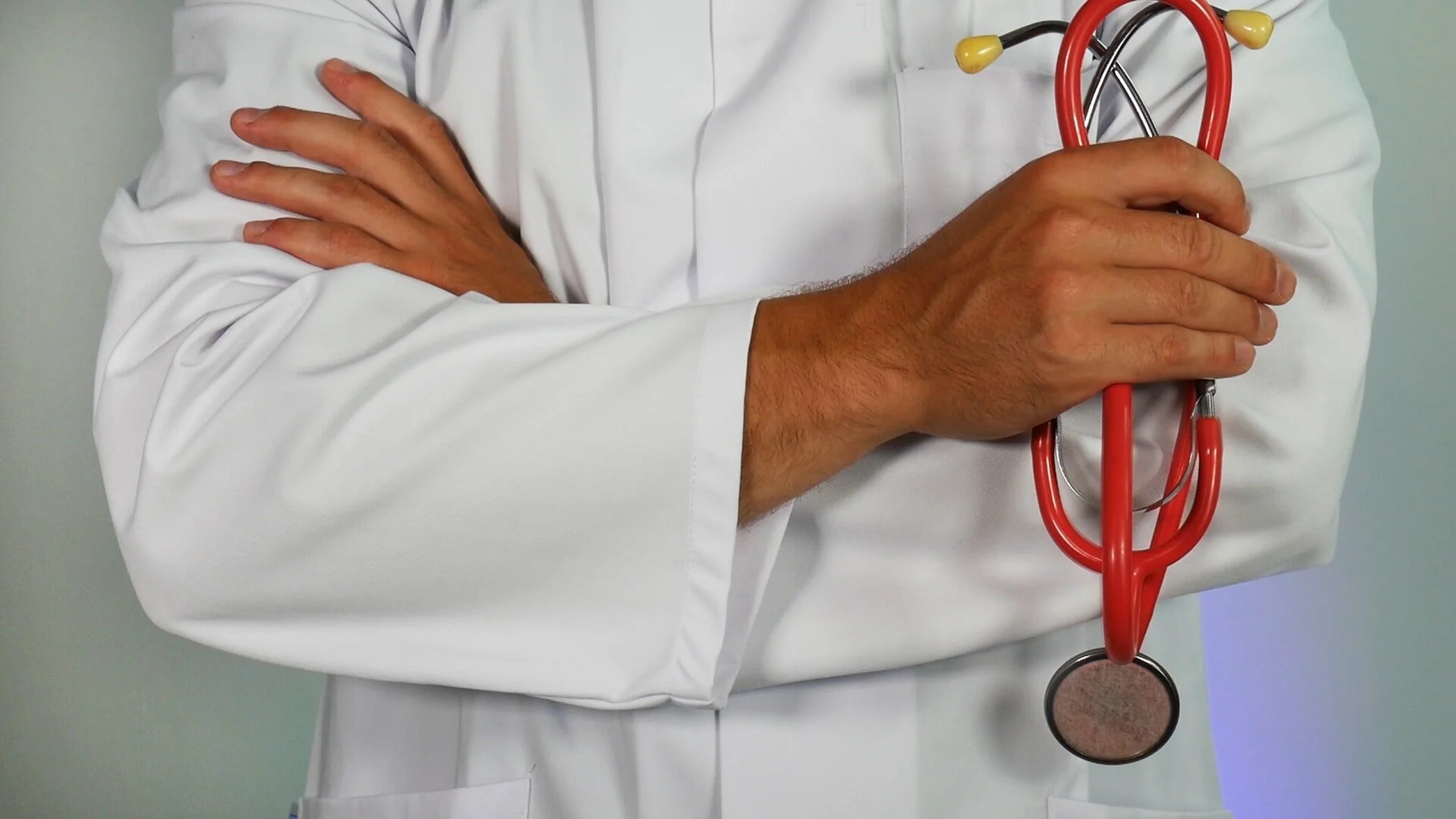Can Self-Diagnosis Help Eating Disorder Sufferers Ignored By The System?
Self-diagnosing mental health conditions has long been a controversial subject. While it’s often thought of as a professional diagnosis’ troublesome little sister, there’s far more to it than a simple Google search would make it seem. For the individuals it helps, self-diagnosis can be truly life-saving and alter the course of their entire future – particularly in the field of eating disorders. So, what if we told you it was actually okay to try and diagnose yourself, if done sensibly and thoroughly? What if we said it might even become the new, and necessary, norm?
In May 2020, MHFA England reported that 6.4% of those living in England have experienced symptoms of an eating disorder, with those that suffer at a categorically higher risk of premature death and suicide. This percentage may sound small, but means that approximately 725,000 people here in the UK are struggling with an eating disorder – professionally diagnosed or not – at any given time. For these people, being able to identifying their own problems could lead to a lifelong path of recovery.
Receiving sufficient health care – especially when it comes to mental health – must be acknowledged as a privilege that many do not have the luxury of experiencing, with adequate services being costly and otherwise inaccessible. Although we’ve been taught to picture an emaciated, white, teenage, cisgender girl when thinking of those with eating disorders, the reality of their damage is far more widespread and far less simple than this. People are purposefully left behind by our cultural narratives around EDs, and it’s these less-stereotypical sufferers that struggle the most with gaining access to professional care. Having to self-diagnose falls disproportionately on the shoulders of our society’s most marginalised – Black individuals, POCs, the gay and trans communities, those with higher body weights and those with the lowest incomes. According to research compiled by NEDA, it’s proven they’re “significantly less likely to receive help for their eating issues.”
It’s clear the tool of self-diagnosis wields such power when it comes to eating disorders, and recovering fully from them. If you aren’t aware you have a problem, or are in denial of its severity, then how can you take the necessary steps to heal from it? And if you can’t access the help you need outside of yourself, then where do you go from here?
Self-diagnosing is a valid course of action, and a route more and more sufferers are choosing to go down.
We decided to reach out to someone who owed their life to choosing this path. Angie Marie (@freewithfood), a self-diagnosed ED survivor living in the US, has had her fair share of eating-based trauma. “I recognised that I had developed eating disorder behaviours around the age of sixteen,” she confides, sharing: “I didn’t think anything was too serious, but I came across some blog articles and YouTube videos on the internet about eating disorders, and realised I identified with a lot of symptoms.”
After finding NEDA’s website, Angie realised she was probably suffering from anorexia. “I was shocked to feel such a reflection of my own experience in something I knew very little about at the time. There was always a part of me that felt like something was wrong, but having my experience validated transformed the steps I took next into recovery.”
“There's a lot of stigma around mental health, and I was afraid of speaking up and acknowledging there was an issue,” she says. “In a society that normalises disordered eating patterns, it's so easy to dismiss these behaviours and mind-sets as ‘no big deal’. In reality, depriving our bodies in any way is harmful. Coming across these resources was life-changing, and I feel extremely grateful I found them when I did.”
To Angie, diagnosing ourselves is a form of personal liberation – one she finds is able to lift the barriers to mental health understanding that some prejudiced professional care can put in place. “Lack of fair access is definitely a reason why self-diagnosis may be critical for someone,” she asserts. “Telling people an official diagnosis is the key to unlocking the door to recovery is dangerous if you consider privilege, accessibility, weight stigma and all the other factors that may hinder someone from getting there.”
“Self-diagnosis is valid. Self-diagnosis may be the only option someone has, and if the goal is recovery, it's not anyone's right to determine who is and isn't worthy of healing.”
So, how do we take our own next steps – or first steps – into recovery? Where do we start with self-diagnosing, and are there any serious downsides to choosing to do so?
Natasha Gibbard, a practicing CBT therapist in the UK, believes we know our own brains best and have the right to understanding how they work. “Having knowledge about common mental health difficulties is extremely valuable, as it helps us be more self-aware and take an active role in managing our well-being,” she says. “Every individual is an expert of themselves by experience, and will know themselves better than anyone else.”
However, this professional knows first-hand that self-awareness doesn’t always guarantee the most accurate understanding of ourselves. “I think self-diagnosing has the potential to be detrimental. When we tell ourselves we have a disorder, we become hypervigilant of our symptoms and it can become difficult to see beyond a diagnosis, exacerbating one's distress and difficulties.”
“I also question whether self-diagnosing perpetuates misunderstandings of certain diagnoses if we label ourselves incorrectly,” she adds, querying whether an element of misinformation could be harmful in the process of searching for a medical label. As such, she advises: “If someone is concerned about their mental health they should always seek professional help, as there’s a lot of inaccurate and unhelpful information available online. Working together with mental health professionals to get a diagnosis can play a vital role in developing an effective treatment plan, based on evidence and research.”
The potential for harm that comes attached to self-diagnosing cannot be overlooked, nor can it be ignored. There are real life risks that come with searching for a diagnosis on the internet, and Dr. Google shouldn’t be your only friend in the process. It’s always worth seeking out some professional support and guidance where you can. By consulting with a free mental health service or your trusted local GP you’ll be ensuring yourself the most accurate diagnosis, as the experts are experts on this for a reason. And if you can access inclusive therapy, as Natasha suggests, then why not give it a go?
But what becomes of those of us the system in systemically prejudiced against? As Angie says, “Accessibility is a huge issue for receiving a diagnosis. Medical and mental health care has so many holes in it, and it's not something that everyone can get.”
To see this issue in action, we need only look to a study summarised by NEDA. Having been shown identical case studies of severe eating disorder symptoms from cisgender women of white, Hispanic and Black backgrounds, trained clinicians were asked to identify those whose behaviours were troublesome. The difference in their diagnosing is shocking: with 44% of the white women, 41% of the Hispanic women and only 17% of the Black women considered to have a problem, even showing the same symptoms. These clinicians were also proven less likely to recommend professional help to the Black women.
In the face of proven inequality in eating disorder care, self-diagnosis becomes a justifiable form of mental health identification and provides someone’s suffering with a name when clinicians fail to do so. It takes suffering from the abstract into something tangible, potentially manageable and far more understandable for ourselves.
The idea of patient-informed care is one supported by Sonny Wise, a counsellor based in Australia @livedexperiencecounsellor. Specialising in therapy that places the upmost importance on our lived experiences, they believe there’s room for improvement with diagnostic approaches either way. “I think there are potential dangers and downsides to a self-diagnosis, but that's the same for any diagnosis, professional or otherwise,” they state. “There’s a risk of misdiagnosing, [but] I'm pretty open and comfortable when clients come to me with a self-diagnosis. Most of the time, they're spot on and they've spent years not only living with their ‘symptoms’, but trying to find an explanation.”
Taking a deeper look at the hurdles marginalised voices face when it comes to care, Sonny argues that “a self-diagnosis is often necessary for someone's healing journey purely because these structural barriers are in place”. To them, it’s no secret that “racism, classism, ableism, transphobia and socioeconomic barriers prevent people from accessing competent care, and/or competent providers who don't cause harm, to try and receive an accurate diagnosis.”
“It’s often the most marginalised that need to self-diagnose because the system has failed them,” they share. “So, if we're going to attack self-diagnosis, we need to first attack the system.”
“You can't disagree with someone's reality and you don't work with the diagnosis, you work with the things the client comes to you with – like the goals they want to focus on, the feelings they want to explore, the childhood wounds they want to heal – so a self-diagnosis or professional diagnosis doesn't matter at the end of the session.”
Although there are many sides to this conversation, and you’ll walk away from reading this with thoughts of your own, we hope you’ll find the power of self-diagnosing to be valid – even absolutely necessary for some.
While nearly every article on the first page of Google reads of its dangers when searching, it’s clear this diagnostic tool can help far more than it hinders. Even those that diagnose incorrectly are still given the opportunity to reflect on their struggles and accept that they are facing a mental health problem, something they can take forward into potential conversations with a doctor or therapist if needed. And with the chance of recovery from any eating disorder higher the earlier it is detected, we cannot ignore the power self-awareness of these issues holds.
After everything, we’d have to say the life-saving potential of self-diagnosis is worth noting. Whether it works for you, or you’d prefer leaving it to the professionals, there’s no right answer here – only the hope we can all move forward into recovery as best as we see fit.
If you or a loved one feel the need to self-diagnose an eating disorder, we’d recommend sticking with reliable sources (such as NEDA, BEAT or the NHS England website) for guidance on your symptoms. Upon self-diagnosing with an eating disorder or disordered eating, please follow up with an appointment at your local GP’s office where possible (and if you feel confident in the care they can provide you with). For support with your self-diagnosed condition, you can currently access therapy for free in the UK through the NHS and a number of non-discriminatory charities. For a full list of these charities, check out the Eating Disorders resources in our directory.
PLEASE NOTE: The Unedit are a media outlet, not licensed professionals, and the opinions of those in this article are for informational purposes only. This content is not intended to be a substitute for professional medical advice, diagnosis or treatment if this is something available to you. Never disregard the advice of professionals or delay in the seeking of professional medical advice because of something you have read in this article.








